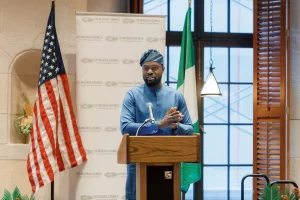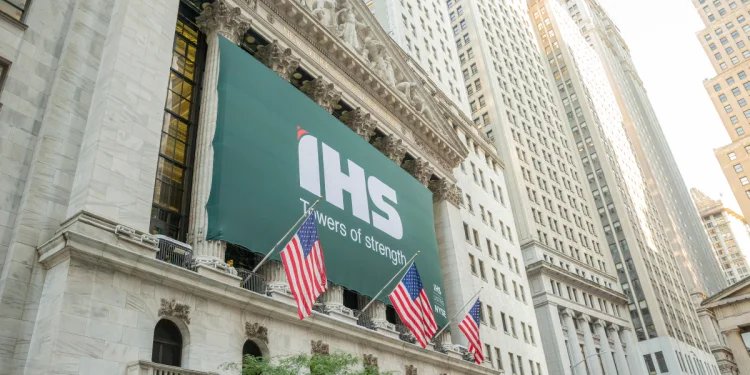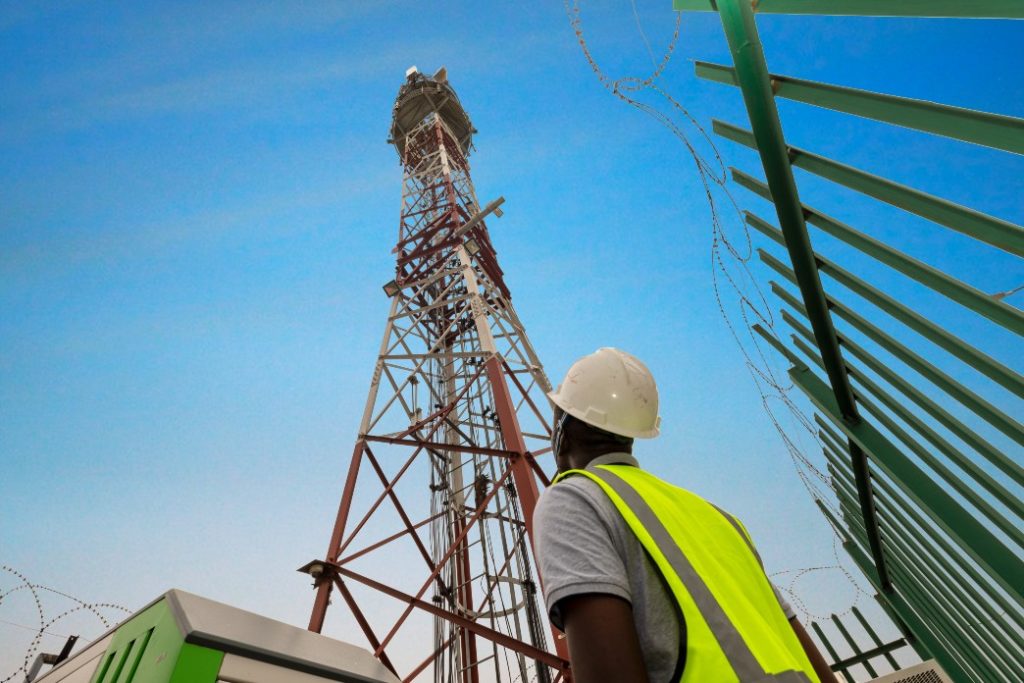Last week, a former associate director with leading Isreali VC OurCrowd Caleb Zipperstein, announced his appointment as a venture partner with Future Africa, and the launch of their Israeli office. This was a bit of a surprise as most local startups or funds have historically looked to Europe or Asia, as alternative sources of capital. So we sat down with Future Africa co-founder Iyin Aboyeji and Caleb to get some insight behind the move.
Adegoke: Iyin. You have a reputation of being ahead of the curve and spotting the next best startup idea or trend so I’m curious. Why are you opening an office in Tel Aviv, Israel? When everyone else is looking to the West then maybe Asia, for capital?
Iyin: The first reason is Caleb. You can’t go to Israel without a professional like Caleb to support you both in terms of his political savvy with the existing prime minister’s office and experience and numbers with Israeli VC OurCrowd which is a firm that is tailored after ours. Working with Caleb was the first direction. I think we would have worked with Caleb anywhere he was in the world.
The other benefit is when we think of the kind of challenges we face here, from security to agriculture, I think there’s a lot we can learn from the Israeli venture community. We are in the US you know. So it’s not a question of us looking away from the West but really looking in places where others wouldn’t, to find a new class of limited partners (LPs).
Adegoke: What does the current state of ecosystem relationship between Africa and Israel look like and where will Future Africa take that relationship to?
Iyin: There’s been a long history, maybe hidden, when it comes to things like cybersecurity. A lot of us know Cybersun. That’s an Israeli firm in Nigeria. Even agriculture. A lot of drip irrigation technology that is used across the country is Israeli tech.
Caleb: Yeah. Netafim. In fact, they announced last year a $60 million deal or something like that with Rwanda. Tala communications which is in Kenya raised from an Israeli VC. Zipline raised from an Israeli VC. There are lots of collaborations. Today, Israel has three direct flights to Addis Ababa and their schedules were barely altered during the pandemic.
Iyin: My mindset is there are hidden relationships between the Nigerian and Israeli tech communities. It’s not at an all-time high though. So there’s an opportunity for us to really build that with Caleb in Israel, get more Israeli LPs, people that are very optimistic about technology and its use for solving real problems. And we’re not stopping with Tel Aviv. At the moment, we’re having conversations about an office opening in Dubai and London. We’re going to be scaling Future Africa very fast around the world and building this global investment firm that’s focused on Africa.
Adegoke: How did you meet Caleb?
Iyin: I had this bunch of really interesting calls with Caleb. He reached out to me when he was thinking about moving to Rwanda during the pandemic to learn about and explore the innovation and VC ecosystem in Africa. We met online and started talking a lot and I told him that a good way for him to get involved would be to work with us especially around investor success. This is because he comes with that understanding of how to get investors infectiously excited about Africa.

Adegoke: I agree! Caleb is always enthusiastic every time I speak with him.
Iyin: Yeah. That’s the kind of energy we need in our firm to bring more investment into Africa.
Adegoke: How would you characterize the Israeli ecosystem in terms of the size of investments, the biggest startups, or entrepreneurs?
Caleb: What’s going on in the Israeli ecosystem is that the economy is maturing. We’re seeing more unicorns and growth deals than ever before. There were 19 IPOs last year. We’re not seeing less private capital coming into the country but we’re seeing a little bit less of early-stage investing. I’m a little bit curious if this then presents some market opportunity for investors who are looking for early-stage deals. Through the pandemic, Israelis have these key hidden records in fundraising. We’ve had more unicorns, Lemonade, and two companies’ IPO recently. The former commander of the Israeli Mossad, the most elite secret service spy agency in the world, was just hired to be Israel’s representative for SoftBank. It’s crazy what is happening within the tech ecosystem in terms of big solutions. Israel’s Prime Minister was a cybersecurity entrepreneur and an investor. The former mayor of Jerusalem made his money as an early investor in Checkpoint Cybersecurity. Generally, through the pandemic, the Israeli tech ecosystem has grown, the values have grown, the companies have matured. Now the question really is how this affects the early stage landscape. Israel will always be entrepreneurial, innovative, looking to solve problems. I’m interested in if there’ll be more opportunities for collaboration with neighbouring markets, which in this case would include Africa.
Adegoke: Outside of Israel, which market would you say receives most of Israeli tech investment?
Caleb: I’d say Silicon Valley. VCs like Ribbit Capital. I think Ribbit led the last round in ChipperCash. So there could be a really interesting Israeli-African connection. I’m really hoping that Israeli innovators will look to Africa and also that Israeli startups, growth companies, and corporate venture funds in Israel will be working closely with Future Africa and its portfolio companies. There’s a huge fintech following but there are not enough jobs for Israelis. There’s room for more great fintech but seeing the fintech boom in Africa, we think there could be some great ways for talent exchange and collaboration.
Adegoke: Is the predominant investment thesis in Israel similar to what we have here? Beyond key sectors like fintech, do you see investors putting their money in other business areas?
Caleb: Israel is not a B2C market. We’ve also very recently have become more of a scale-up market. There are many startups that were sold for hundreds of millions of dollars before they were even selling a single product. In Africa, the way to become a unicorn is to have a great product, management team, execution. I think the potential ways in which Israel is.
Iyin: Caleb’s remit is going to go beyond Israel. So the presence in Israel is just a part of the full picture. We want to be visible to investors, particularly to those that can add a lot of value to our portfolio. And this is where we may be looking for partnerships and solutions. Like in Dubai, there’s a whole bunch of companies coming particularly from Europe who leverage Israel as their premier headquarters. Caleb’s going to be working with us across the world, with our investors. We currently have over 300 investors from across the world. And we’re looking to further scale our presence for investors all over the world – from current offices in the U.S., Tel Aviv, and Lagos, with plans to set up in London, Dubai, etc, – and we’re hiring quite a number of people for the expansion.
Adegoke: Nice! How do you plan to sell the African story to entrepreneurs and investors?
Caleb: I’m going to show them articles on TechCabal which have been showing stories about big rounds in companies, startups reaching unicorn status, Paystack getting sold, Flutterwave creating the impact that they’ve had, and reaching business milestones that they’ve had. The numbers don’t lie. The number of deals in Africa is growing year over year – literally at an out-of-control pace. And early investors in those deals have been able to benefit demonstrably from those wins which is the embodiment of VC – high risk, high reward. Honestly, I cannot think of a better person to introduce the African VC ecosystem to this country than E because of his experience as an entrepreneur and an investor.


















